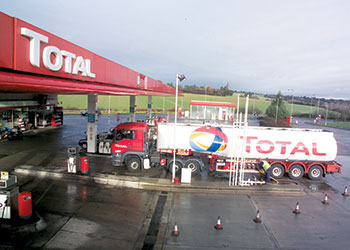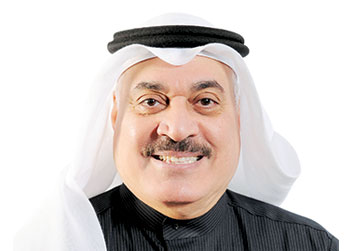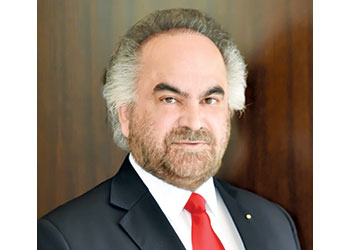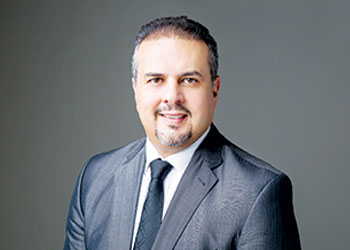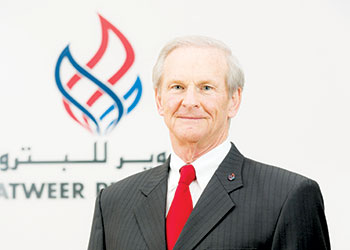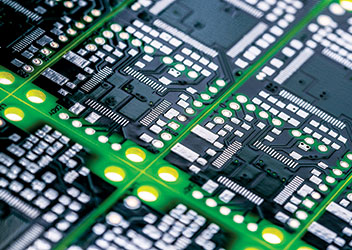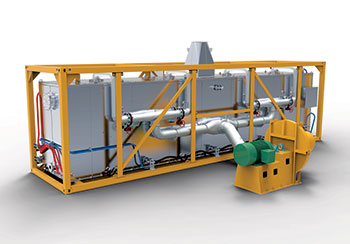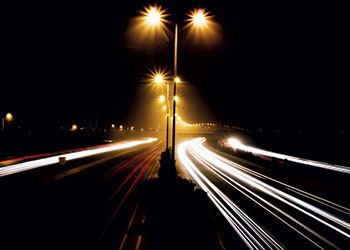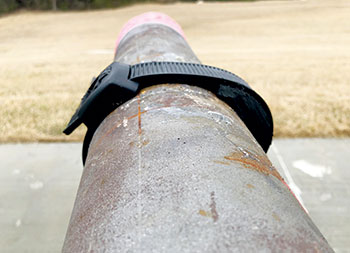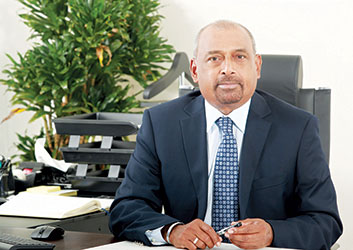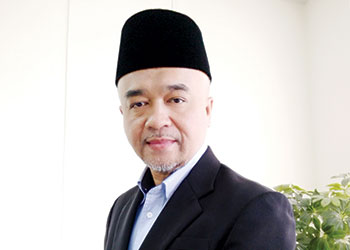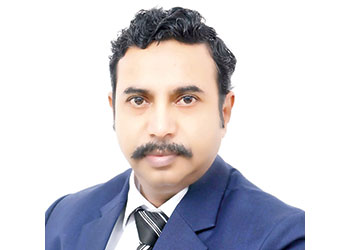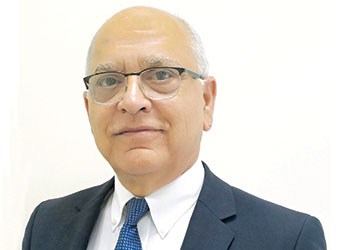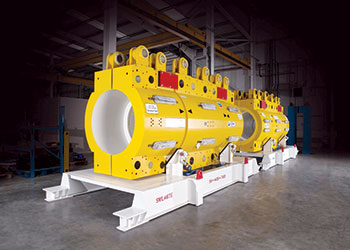
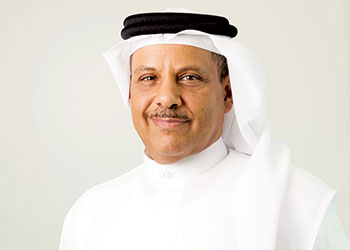 Dr Al-Jalahma ... cautiously optimistic
Dr Al-Jalahma ... cautiously optimistic
Bahrain is currently drilling an appraisal well and at the same time contacting certain IOCs who are pioneers in exploring and producing unconventional resources to invest in the kingdom where some 81.5 billion barrels of tight oil was discovered, says DR DAFER RASHED AL-JALAHMA, Acting Chief Executive, nogaholding
The response from international oil companies (IOCs) and oilfield service firms to Bahrain’s discovery of 81.5 billion barrels of tight oil and 390 billion cubic metres of associated gas at the Khaleej Al Bahrain has been ‘very positive’.
'In fact, many IOCs contacted us and attended data room in Tatweer Petroleum to review all available data. Some IOCs expressed interest to proceed further to conduct detailed studies in order to assess the opportunity to invest in appraisal and production phases,' says Dr Dafer Rashed Al-Jalahma, Acting Chief Executive, The Oil & Gas Holding Company (nogaholding), Bahrain.
The deployment of latest technology in producing such unconventional resources and investment from IOCs would certainly boost hydrocarbon production, says Dr Al-Jalahma in an exclusive interview with OGN.
 |
The new LNG terminal |
The assessment of the newly discovered unconventional resources will continue over the next five years. This requires drilling a number of appraisal wells with horizontal drilling and hydraulic fracturing technology for further data gathering and evaluation, he says.
Referring to Bahrain’s new LNG terminal, he says he expects it to be fully operational in Q2, 2019.
The engineering procurement and construction (EPC) of the Bahrain LNG Terminal is 99 per cent complete and the commissioning phase is due. The LNG procurement is by NOGA (The Customer – offtaker) and not by the Bahrain LNG Company.
NOGA has signed MSPAs (Master Supply Purchase Agreements) with more than 25 LNG international and reputable suppliers. Therefore, there is a wide option for LNG imports from various sellers which would ease the procurement process, notes Dr Al-Jalahma.
On the Bapco Modernisation Programme (BMP), he says it is now in its final detailed engineering phase 'and last month we inaugurated the groundbreaking ceremony at the site of the project'.
On the financing side, BMP will be project-financed through senior long-term secured debt and equity. The debt financing will include a combination of conventional, Islamic and export credit agencies (ECAs) covered facilities, with CESCE, K-EXIM, K-SURE SACE and UKEF providing ECA financing for the project.
'We signed the financing agreements last December, and we are currently working hard with Bapco and its advisors to complete the conditions precedents required for the achievement of financial close and first drawdown, which is expected to take place in a few weeks. We are very excited because the achievement of this important milestone is of great importance to the Kingdom of Bahrain, nogaholding and Bapco,' he explains.
 |
Bapco ... undergoing modernisation |
Excerpts from the interview:
With Bahrain’s significant oil find and gas discovery poised to open a new chapter in the kingdom’s history what are your thoughts on the matter? What are the challenges associated with it?
This is a significant discovery of unconventional tight oil in Bahrain, which had made its first oil discovery back in 1932. This new oil discovery, announced in 2018 of about 80 billion barrels of Oil in Place, is located in the western offshore area of Bahrain. Also declared was an onshore Deep Gas in Place resources in the order of 10-20 tcf. These unconventional resources require using fracking technology and drilling of horizontal wells which are considered the main challenge to produce such oil and gas resources.
What distinct advantages does the Khaleej Al Bahrain have over other shale formations in the region and the world over?
The discovery of hydrocarbons in Khaleej Al Bahrain is mainly from a tight Carbonate geological formation which is considered as a main source of hydrocarbon in the Arabian geological basin. This source rock formation is of same characteristics of other analogue formations in the region and the United States. The formation thickness and depth of these reservoirs are reasonable and can be appraised for further assessment.
Having done a lot of diligent front-end planning over the past 2-3 years, including initial drilling and detailed technical studies, how will it accelerate the assessment process that will take place?
The discovery was announced last year. We have just started the journey of the assessment of such discovered resources. The assessment will comprise drilling a number of appraisal wells for data gathering and further evaluation.
What is the scope of works being undertaken by Halliburton at the Khaleej Al Bahrain?
Halliburton is a service contractor who is currently helping us in drilling the first appraisal well. The main scope of work of these services include drilling of horizontal wells and the fracturing of the potential reservoirs.
 |
The AB-4 pipeline |
When do you expect to receive data from the assessment wells being drilled by Halliburton?
Drilling appraisal wells may take up to five years to assess and evaluate the resources. However, the first well is being drilled now and its results will definitely help us to place other appraisal wells in the near future.
How soon will the works associated with extracting oil and gas have its impact on the various sectors of the economy?
Great efforts are being put by the Kingdom of Bahrain to meet its future hydrocarbon energy challenges by assessing the newly discovered resources and also enhancing recovery and production of oil and gas from the currently operational Bahrain Field. These efforts are of a long term nature in order to add more oil and gas reserves and will undoubtedly lead to the overall growth of the economy and development of the kingdom.
How much of investments need to be channeled to the oil and gas extraction process?
It is well known that the operational cost to produce unconventional oil and gas is more than the conventional one. These operations usually require drilling a lot of horizontal wells and conduct many hydraulic fracturing in order to have a sustainable production. We are currently drilling an appraisal well and at the same time contacting certain international oil companies who are pioneers in exploring and producing such unconventional resources to invest in the Kingdom of Bahrain.
What has been the response from IOCs and oilfield companies towards the discovery?
The response to the discovery from IOCs and oil field companies is very positive. In fact, many IOCs contacted us and attended our data room in Tatweer Petroleum to review all available data. Some IOCs expressed interest to proceed further to conduct detailed studies in order to assess the opportunity to invest in appraisal and production phases. The deployment of latest technology in producing such unconventional resources and investment from IOCs would certainly boost hydrocarbon production.
When and how can we expect production of the newly discovered oil and gas?
The assessment of the newly discovered unconventional resources will continue in the next five years. This requires drilling a number of appraisal wells with horizontal drilling and hydraulic fracturing technology for further data gathering and evaluation.
When will the LNG terminal be fully operational? Have you lined up imports through the new terminal? If so, with whom?
The EPC (Construction) completion of Bahrain LNG Terminal is 99 per cent complete and the commissioning phase is due. We expect the terminal to be fully operational in Q2, 2019. The LNG procurement is by Noga (The Customer – offtaker) and not by the Bahrain LNG Company. Noga has signed MSPAs (Master Supply Purchase Agreements) with more than 25 LNG international and reputable suppliers. Therefore, there is a wide option for LNG imports from various sellers which would ease the procurement process.
What is the update on the Bapco Modernisation Programme?
The Bapco Modernisation Programme (BMP) is a major refining and development project, which will be the company’s single largest investment in its long history, and consists of a group of related projects that are expected to be managed in a co-ordinated way to maximise benefits.
The project has been many years in the making and, as you will all be aware, is currently under construction. BMP is now in its final detailed engineering phase and last month we inaugurated the groundbreaking ceremony at the site of the project.
On the financing side, BMP will be project financed through senior long-term secured debt and equity. The debt financing will include a combination of conventional, Islamic and export credit agencies (ECAs) covered facilities, with CESCE, K-EXIM, K-SURE SACE and UKEF providing ECA financing for the project. We signed the financing agreements last December, and we are currently working hard with Bapco and its advisors to complete the conditions precedents required for the achievement of financial close and first drawdown, which is expected to take place in a few weeks. We are very excited because the achievement of this important milestone is of great importance to the Kingdom of Bahrain, nogaholding and Bapco.
What projects shall we see giving a boost to Bahrain’s downstream sector? How much of investments are targeted?
The expansion of Banagas commissioned this year and the refinery post modernisation due to start production in 2022, together, are set to transform Bahrain’s downstream sector in terms of availability of feedstock. The additional LPG and Naphtha production from the two projects creates opportunities to explore petrochemical integration.
Although the motivation for integrating refinery and petrochemical production can be compelling, it can be achieved through multiple routes, each of which is different in terms of products, further downstream possibilities, profitability and investment size. Assessment of the advantages that each option could offer requires a parallel comparative study of each.
Last year, nogaholding engaged a global industry consultancy firm to perform a study considering the major options available for integration as well as to provide guidance on the potentially available benefits to the Kingdom of Bahrain. The findings are encouraging and promising. However, we have recently decided to slow down those activities and plans until we get more clarity on how much we can recover from the recently discovered oil and gas field, Khaleej Al Bahrain, which holds an estimated 81.5 billion barrels of oil and 390 billion cubic metres of associated gas in place. Our initial analysis shows that the associated gas is rich in ethane, which has been the key feedstock that led to the development of competitive gas-based petrochemical industries over the entire GCC region.
What role will the newly commissioned Banagas expansion project have on the oil and gas sector of Bahrain?
The expansion project shall further enhance the recovery of LPG products from associated gas which had not been recovered in the past due to gas processing capacity constraints. The new gas processing facility has a nominal processing nameplate capacity of 350 mmscfd of additional associated gas and will recover additional of 10,000 barrels per day of LPG products and naphtha, which will be targeted for export.
The plant was commissioned in Q4 of 2018, and is currently in the early operation phase. It is expected to double the revenues from LPG sales starting from this year.
In addition to the direct economic benefits, the major part of the residue gas from the new plant will be recycled back to the Bahrain Field. This residue gas is of importance for the gas injection process that has been (and will continue to be) applied as part of the enhanced oil recovery programme carried out by Tatweer Petroleum.
Having inaugurated the AB-4 pipeline between Bahrain and Saudi Arabia, what impact will it have on the oil sector in Bahrain?
The new AB Pipeline, with a maximum nameplate capacity of 400,000 bpd, will link the Sitra Refinery to Saudi Aramco’s plant at Abqaiq, eastern Saudi Arabia. Abqaiq Plant is Saudi Aramco’s largest oil processing facility and the largest crude oil stabilisation plant in the world. The new A-B Pipeline will enable Bapco Refinery to secure its entire feedstock volumes post BMP from Saudi Aramco, if necessary.
Moreover, the new AB pipeline is better equipped to operate more safely and to meet more stringent environmental compliance regulatory standards and goals.
Regarding renewable energy, what are key solar projects that are on the anvil?
Bahrain’s economy is fuelled by natural gas which is the responsibility of Noga and nogaholding. Natural gas produced from the Bahrain field provides the necessary energy and feedstock for over 40 customers covering major industries such as aluminium smelter, power and water generation and petrochemicals. In order to optimise gas production and extend the life of the Khuff reservoirs, Noga has been testing the commercial feasibility of solar on the island. Three experiments were carried out by the Ministry to monitor the impact on gas consumption.
The first one was a 5 MW solar system in Awali town where PV panels were mounted on car park covers and street light poles to supplement the town’s consumption with clean energy. The second one was a 1 MW solar farm installed in the Bahrain field to supplement Tatweer Petroleum’s HQ’s with clean energy. The third was a small 10-house pilot to test the feasibility of installing solar panels on government houses. This project is under monitoring and evaluation to assess the feasibility of such small-scale installations. Noga and nogaholding will continue to test creative solutions related to energy conservation be it solar or others.







































































